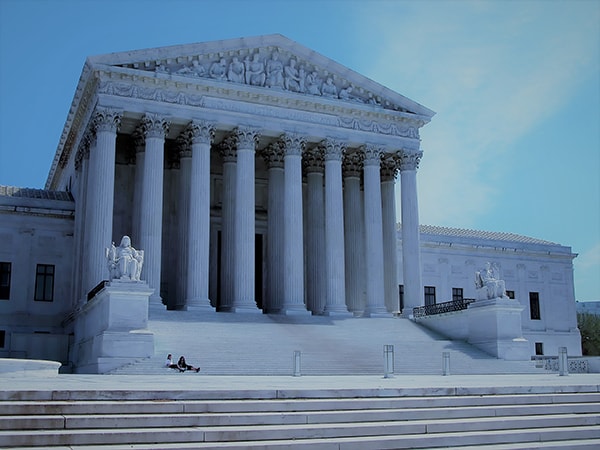Leading Federal Appeal Attorneys: Your Companions in Browsing the Appeals Refine
Leading Federal Appeal Attorneys: Your Companions in Browsing the Appeals Refine
Blog Article
Demystifying the Refine of Federal Appeals: What You Need to Know
Browsing the elaborate world of federal allures can typically appear like passing through uncharted waters for those not familiar with the procedure. Comprehending the subtleties of appellate court territory, the intricacies of filing a notification of allure, presenting a compelling short, and making an influential dental argument are crucial parts that can considerably influence the outcome of a situation. By unraveling the layers of complexity surrounding federal charms, individuals can get a clearer insight right into the devices that govern this important phase of the legal system.
Comprehending Federal Appeals Refine
Exploring the complex world of the government appeals process reveals a organized and systematic journey with the judicial system - medical fraud appeal lawyers. Federal allures work as a vital mechanism for evaluating choices made by reduced courts. Understanding this procedure is necessary for any individual associated with lawful proceedings at the federal degree
The process normally begins with an event dissatisfied with a reduced court's judgment filing a notification of charm. This sets off a testimonial by a greater court, where a panel of judges examines the legal disagreements offered by both celebrations. Briefs describing the lawful reasoning behind each party's placement are submitted, and dental debates may be heard to clear up complicated problems.
The appellate court's decision is based on an extensive exam of the lower court's procedures and the debates presented. When the appellate court gets to a choice, it can affirm, reverse, remand, or customize the reduced court's ruling, offering clearness and finality to the lawful disagreement.
Appellate Court Territory Described

Appellate courts have territory over specific sorts of instances, generally those including lawful errors, procedural concerns, or inquiries of law instead of valid disputes. The jurisdiction of appellate courts is normally laid out in statutes and laws that regulate the court system. Recognizing appellate court territory is essential for celebrations associated with the allures process as it identifies whether a situation is qualified for testimonial and the level to which the appellate court can intervene in the lower court's decision.
Filing a Notice of Charm
The preliminary step in starting the government charms process entails filing a Notification of Allure with the proper appellate court. federal crime appeal lawyers in rhode island. This crucial paper officially notifies the court and the other events entailed in the instance that the appealing event means to look for a review of the lower court's decision. Submitting a Notification of Allure is a strict procedural demand that establishes the appellate procedure in motion
When preparing the Notice of Charm, it is vital to ensure compliance with the details guidelines and guidelines of the appropriate appellate court. The paper has to commonly include info such as the situation name, the lower court's name, the day of the judgment being appealed, and a succinct declaration suggesting the premises for the allure.
When submitting a Notice of Charm,Timeliness is of the significance. Missing the due date for sending this document can lead to the allure being dismissed, highlighting the value of exact and punctual initiation of the appeals procedure. It is recommended to seek lawful support to navigate the intricacies of submitting a Notification of Allure effectively.
Briefing and Oral Disagreement
In the appellate process, providing created briefs and participating in dental disagreements play critical roles in promoting for the appealing celebration's position before the appellate court. Briefs are extensive legal files that describe the parties' arguments, legal authorities, and analysis sustaining their settings. These composed submissions supply the court with an in-depth understanding of the realities of the instance, the pertinent legislation, and why the appealing celebration believes the lower court's choice need to be rescinded.
Complying with the submission and testimonial of the briefs, dental debates offer the celebrations a chance to additional clarify their settings, attend to any type of concerns the appellate judges might have, and highlight vital factors from their composed briefs. Oral disagreements are a possibility for the lawyers to persuade the judges via spoken advocacy and responses to inquiries from the bench.

Obtaining the Appellate Court Choice

Conclusion
In verdict, the federal charms process is a complex however essential action in seeking justice. Recognizing the appellate court territory, submitting a notice of appeal, preparing briefs, and providing oral arguments are all crucial components of this process. Inevitably, obtaining the appellate court choice can give clarity and resolution to legal conflicts. It is necessary to navigate the federal allures process with diligence and attention to detail to attain a fair result.
As we advance from recognizing the federal charms procedure to dissecting the ins and outs of appellate court territory, a fundamental element comes to light concerning the authority and limitations of these higher courts in the legal landscape. Appellate court jurisdiction refers to the range of situations that a specific appellate court has the power to determine and assess upon. Unlike test courts that listen to instances for the first time, appellate courts are limited to examining choices made by reduced courts. Understanding appellate court jurisdiction is important for celebrations entailed in the appeals procedure as it establishes whether a situation is eligible for review and the extent to which the appellate court can interfere in the reduced court's choice.
Whether the appellate court verifies, reverses, or remands the lower court's decision, comprehending the ramifications of the judgment is vital for all events entailed in the appellate procedure.
Report this page